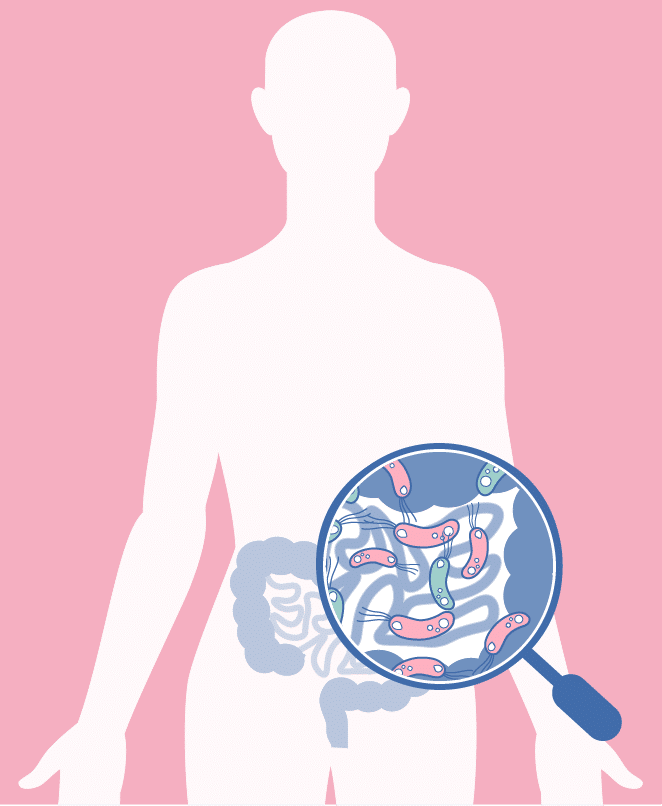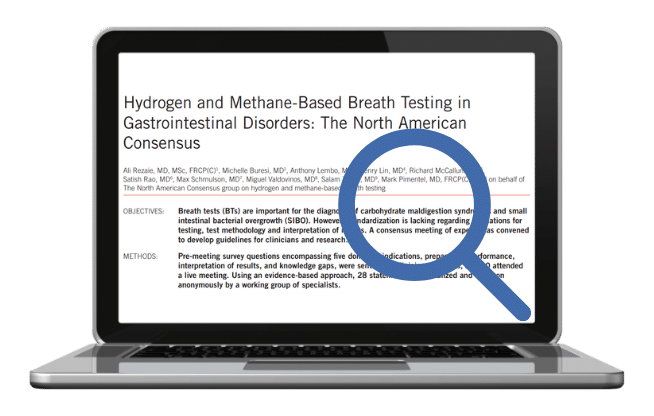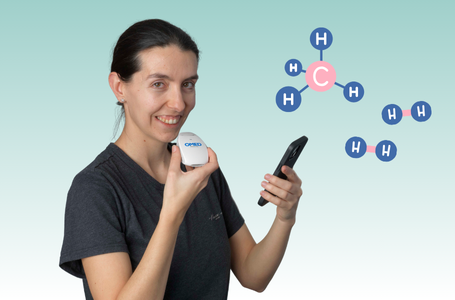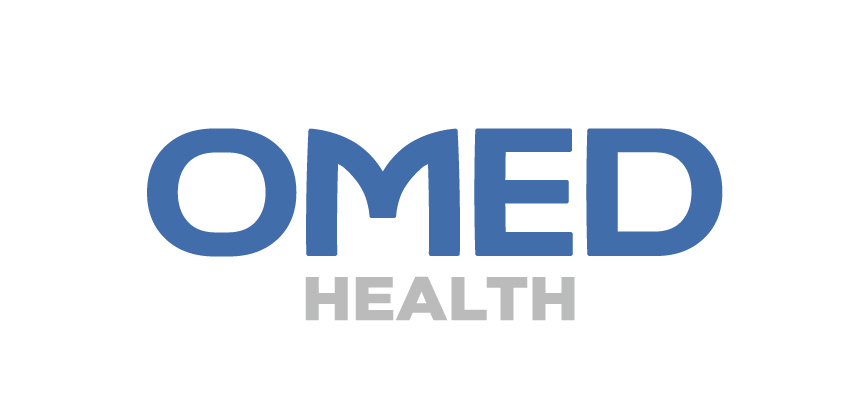Gastrointestinal diseases such as inflammatory bowel disease (IBD), irritable bowel syndrome (IBS), and small intestine bacterial overgrowth (SIBO) affect over a billion people worldwide. These disorders are common and cause non-specific, yet highly uncomfortable symptoms, creating a serious diagnostic issue for patients and their clinicians. Current diagnostic tests are expensive, time-consuming, require specialist expertise, and are often invasive, causing discomfort and distress for patients.
These challenges combined with the embarrassing nature of these illnesses mean that it can take years for many people to receive a satisfactory diagnosis and start effective treatment that can help them in their gut health revolution.
WHAT CAN A GUT HEALTH TEST DO FOR YOU?
You may have seen hydrogen and methane appear in the search results when looking for a possible root cause of your gut-related symptoms. In this blog, we will give further context as to why hydrogen and methane can be seen as indicators of your digestive health. Hydrogen and methane are produced in the intestines and are picked up and distributed in the bloodstream. From the blood they can exchange into the air in our lungs, which can then be exhaled through the breath.
Hydrogen and methane are made by microbes living in our intestines as a result of the fermentation of undigested carbohydrates from the food we eat. It is normal to have microbes living in our gastrointestinal tract, and a certain amount of hydrogen and/or methane is produced naturally as a result of digestion and the absorption of food. However, monitoring the amount of hydrogen and methane these microorganisms produce can provide valuable insights into your gut health.
So, what is SIBO? SIBO stands for small intestinal bacterial overgrowth, and happens when there is an overgrowth in the number of bacteria present in the small intestine. These bacteria then metabolize the sugars you eat prematurely, before the body has time to properly absorb them. The sugar they metabolize is then converted into hydrogen and methane.

Therefore, when there is an overgrowth of bacteria, there is an excessive amount of hydrogen and methane produced. When the levels of hydrogen and methane detected in the breath are above normal levels, this can be used to test for SIBO.
In the case of food intolerances, the specific sugars that the person is intolerant to don’t get absorbed efficiently by your body, so there is an excessive amount of these sugars available for the microbes that live in the large intestine to convert into hydrogen and methane. Like SIBO, this means an excess of hydrogen and methane will be exhaled on the breath.
Breath tests are a simple and safe way to monitor the level of these gases and can help you start to understand what may be causing your digestive health symptoms. This forms part of the information that a specialist clinician can use to help you to take better control of your gut health. If you would like to learn more about the science behind breath tests for digestive issues, this paper published by Rezaie et al. is a good starting resource and will be discussed in this blog.
ARE HYDROGEN AND METHANE BREATH TESTS ACCURATE?
SIBO is often tricky to diagnose, however, the ‘gold standard’ test for SIBO is the breath test, which analyses the amount of hydrogen and methane in your breath. SIBO breath tests are highly sensitive, measuring the concentration of gases in the parts per million (ppm) range in the breath.

As both gases are involved in SIBO, it is very important that your SIBO test analyses both hydrogen and methane levels. This is because some of the microbes in your gut that can cause problems are archaea, which produce methane rather than hydrogen. If only hydrogen is measured, it is more likely that a false negative result occurs, which can affect your treatment plan.
A false negative result is when a diagnostic test incorrectly returns that you do not have a condition, when in fact you do. A false negative can lead to misdiagnosis, meaning your undetected SIBO, or other digestive condition could go untreated. The group ultimately found that glucose and lactulose breath tests are promising and remain the least invasive method compared to alternatives to diagnose SIBO.
Breath testing was also shown to be useful in the diagnosis of carbohydrate maldigestion, methane-associated constipation, and evaluation of bloating/gas, but not in the assessment of oro-cecal transit.
The breath contains many different compounds that can either originate from environmental factors or from metabolic processes within the body. However, in order to diagnose SIBO or other digestive disorders a more accurate measurement of the gases is required, as opposed to a simple ‘yes’ or ‘no’ answer as to whether hydrogen and methane can be detected.
To order to provide this level of diagnostic accuracy, we need to be able to measure the precise concentrations of compounds on breath, which are low enough in concentration that they are measured in ppm.
A rise in hydrogen levels of ≥20 ppm in the breath by 90 min after glucose or lactulose was ingested indicated bacterial overgrowth in the intestine, and so was considered a positive result for SIBO. Methane levels of ≥10 ppm were considered methane positive, and therefore also a positive result for SIBO.

It was also established that SIBO should be excluded prior to breath testing for carbohydrate malabsorption conditions to avoid the risk of false positives, as these conditions present with similar symptoms, despite having different causes. A rise in hydrogen levels of ≥20 ppm from the baseline levels during breath testing was considered a positive result for maldigestion, indicating that the gut is not properly digesting food. With these thresholds for diagnostic criteria in place, this enables breath testing to be accurate as possible in order to provide the highest quality information for digestive health to our patients.
Hydrogen and methane breath testing provides the opportunity for patients to monitor their own microbiome at home, which can be used to make more accurate diagnoses. We believe this will form part of a gut health revolution, whereby long-time sufferers of gastrointestinal diseases can receive more timely diagnoses, and start taking steps to alleviate their symptoms.
You can now diagnose SIBO with the OMED Health Breath Analyzer, providing real-time hydrogen and methane levels on the accompanying app from the comfort of your own home. Learn more about how the app works here – it is free to download, allowing you to start tracking diet, sleep, stress, gut health symptoms and more!



